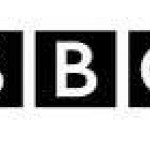- 産業: Broadcasting & receiving
- Number of terms: 5074
- Number of blossaries: 1
- Company Profile:
The largest broadcasting organisation in the world.
The kitemark is a symbol signifying that a product or service has met a standard set by the British Standards Institution (BSI) Product Services division.
Industry:Natural environment
Lagging is another term for insulating, or for the insulating material itself. To lag means to add material to spaces or containers liable to heat loss - typically hot water pipes and tanks, and loft spaces.
Industry:Natural environment
Landfill is disposal of rubbish by burying it under the ground.
Industry:Natural environment
Listed buildings are those included on a government-approved list as having special architectural or historic interest. Special consent for any alterations is required.
Industry:Natural environment
A megatonne is one million tonnes. It is commonly used to describe the large amounts of CO2 emitted by power stations.
Industry:Natural environment
Mercury (chemical symbol Hg) is a metal that is liquid at standard temperature and pressure. It is used in the manufacture of low-energy lightbulbs (CFLs and other fluorescent lights), and extra care must be taken in their disposal, especially when they are broken, because of mercury's toxicity.
Industry:Natural environment
Methane is a hydrocarbon, the main component of natural gas and among the six greenhouse gases to be curbed under the Kyoto protocol. As a greenhouse gas it is estimated to have a warming effect about 25 times as great as CO2. (Compared to CO2 its effects are greater but last for a shorter period). As a fuel, it is used in electricity generation and in the form of compressed natural gas it can be used as vehicle fuel. Methane is produced during the decomposition of many materials in landfill, while about 16% of methane emissions are caused by livestock's digestive processes.
Industry:Natural environment
Microgeneration is small-scale home production of electricity and heat using technology that produces little or no CO2. Common examples include ground source heat pumps, solar panels and wind turbines. Where successful, people can meet their own energy needs and also sell excess energy back to the grid.
Industry:Natural environment
Mineral wool refers to any of several lightweight, fibrous materials used as insulation and created by blowing air or steam through molten blast-furnace slag (slag wool), molten rock (rock wool) or molten glass (glass wool). Definitions vary, but fibreglass is sometimes referred to as a mineral wool.
Industry:Natural environment
Action that will reduce man-made climate change. This includes action to reduce greenhouse gas emissions or absorb greenhouse gases in the atmosphere.
Industry:Natural environment
